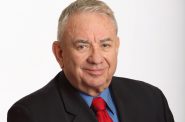The Battle Over On-Line Betting
Gambling keeps growing in Wisconsin. How did we get here?
Wisconsin has a dramatic 50-year history with legalized gambling.
Once there was no such thing.
But Constitutional amendments in the 1970s legalized charitable bingo games and raffles. A 1987 vote authorized the state lottery. Next game gambling at the track: greyhound race tracks opened statewide, but soon closed as bettors took their win-big dreams elsewhere. Then came casinos: Tribes negotiated state gaming compacts in the early 1990s that gave them a monopoly over casino games.
Next year, the Legislature will again consider a bill allowing online bets placed in tribal casinos or over tribal servers — a bill Democratic Gov. Tony Evers hopes he can sign into law.
The Assembly sponsor of that bill, Majority Leader Tyler August, downplayed a postponed vote on the measure last week. “There’s really no rush on this,” he said.
How did we get here? And, why can only Wisconsin’s 11 tribes run casino games?
First, consider the most recent official estimates of how much was bet legally on the lottery and in tribal casinos.
The 11 tribes reported $1.3 billion in “net gaming revenue” — after winners were paid — in 2023, according to a 2025 report from the nonpartisan Legislative Reference Bureau. The report said the tribes operated 13,963 gaming devices and 153 gaming tables in the most reason year measured.
Individual tribal profits “must remain confidential” under state-tribal gaming compacts signed in 1991-1992, the Bureau added.
State-run lottery ticket sales totaled $954.7 million between July 1, 2023 and June 30, 2024, according to a separate report from the nonpartisan Legislative Fiscal Bureau.
But those two totals — casino revenues and lottery sales — don’t include millions of dollars in illegal bets now being placed through offshore betting systems, says Sen. Howard Marklein, a sponsor of the bill to legalize online bets placed in tribal casinos or on tribal servers.
“We’ll make this legal and collect taxes on this, which we certainly need to support health care and schools in the state,” said Marklein, Republican co-chair of the Legislature’s budget committee, speaking at a public hearing. “It will certainly benefit tribes as well.”
The latest proposal builds on four major developments in Wisconsin’s history:
In 1987, two-thirds of voters statewide amended the Constitution to allow a state-run lottery, with profits pledged for “property tax relief,” and pari-mutuel betting, which prompted the opening of greyhound tracks.
In 1988, Congress passed, and President Ronald Reagan signed, the Indian Regulatory Gaming Act. It resulted from a U.S. Supreme Court ruling that tribes, as sovereign nations, could operate casinos on their lands with limited state interference.
That led to Wisconsin-tribal gaming compacts signed in 1991-1992 by tribal leaders and then-governor Tommy Thompson.
In 1993, voters tried to clarify legal gaming by narrowing it to only charitable bingo games, raffles, the lottery and pari-mutuel betting.
In 2006, the Wisconsin Supreme Court ruled that the 1993 constitutional change did not affect tribal compacts, or amendments to those compacts, that state officials and tribal leaders had negotiated.
The court’s “key finding,” according to the Reference Bureau summary, was that “the 1993 constitutional amendment did not apply to these original compacts, which were entered into prior to 1993.”
That ruling gave tribes the casino gaming monopoly they now enjoy, and will have for decades. Eight of the state-tribal compacts have “unlimited duration” or exit in “perpetuity,” while three other compacts aren’t up for renewal until between 2034 and 2061, according to the Reference Bureau.
Bills to allow online bets through the tribes are ready for votes in both houses of the Legislature next year. An Assembly committee voted 10-0 for it; the Senate committee vote was 3-2.
Another Senate sponsor, Kristin Dassler-Alfheim, D-Appleton, said in a Wisconsin Public Radio interview that she believes taxes on gambling would increase by 10% if online betting through the tribes is legalized.
“Really, it’s just giving everyone access to the online markets that the rest of the country is enjoying, that our state has not had access to,” Dassler-Alfheim said.
Tribes, the Milwaukee Brewers, tourism groups and the Milwaukee Metropolitan Association of Commerce, support the bill.
The Sports Betting Alliance, which represents national firms like FanDuel and DraftKings, opposes the bill. The Wisconsin Catholic Conference, Wisconsin Family Action and the Wisconsin Institute for Law and Liberty also registered against it.
“Instant access to wagering on a phone or mobile device — an impulse that can be immediately fulfilled at any time, in any place — has shown itself to be conducive to addiction,” Barbara Sella of the Catholic Conference said in a statement.“Online bets put a sportsbook in every bar, bedroom, and boardroom across the state.”
Damon Stewart of the Betting Alliance questioned the bill’s requirement that 60% of revenues from online gaming must go to the tribes. For national wagering firms, “The math doesn’t work,” Stewart said, the Milwaukee Journal Sentinel reported.
But, in a WISN-TV interview, Evers said helping the tribes is why he is inclined to approve the bill, if it passes the Legislature. “The most important thing is that the native nations of the states are the ones in charge.”
Steven Walters started covering the Capitol in 1988, Contact him at stevenscotwalters@gmail.com
If you think stories like this are important, become a member of Urban Milwaukee and help support real, independent journalism. Plus you get some cool added benefits.
The State of Politics
-
A Wisconsin Political Trivia Quiz
 Dec 15th, 2025 by Steven Walters
Dec 15th, 2025 by Steven Walters
-
The Fight Over Wisconsin’s House Districts
 Dec 8th, 2025 by Steven Walters
Dec 8th, 2025 by Steven Walters
-
The Legacy of Tommy Thompson
 Nov 17th, 2025 by Steven Walters
Nov 17th, 2025 by Steven Walters



















